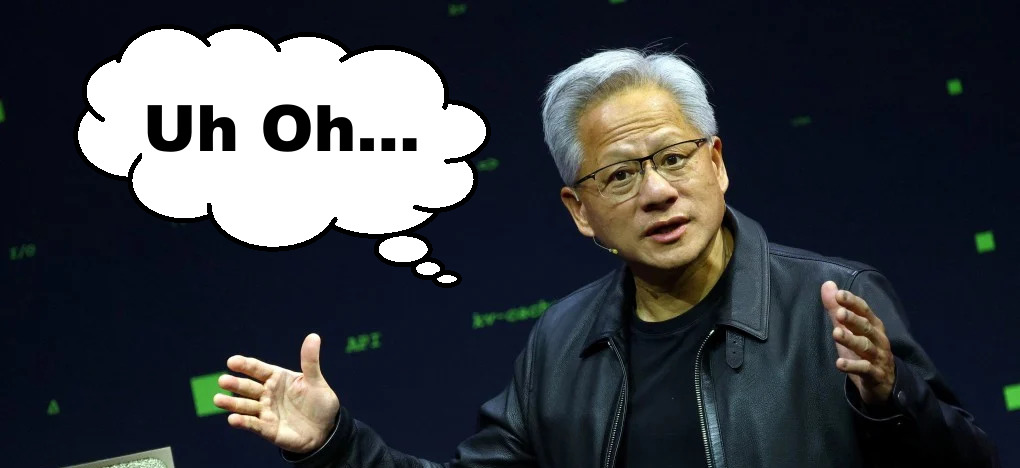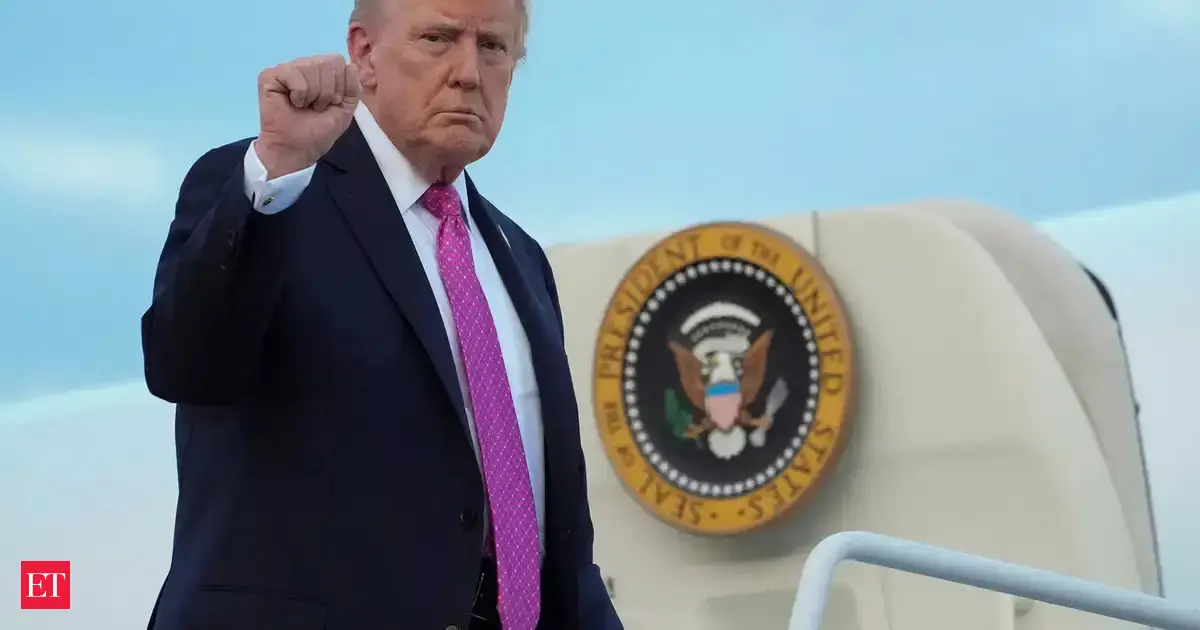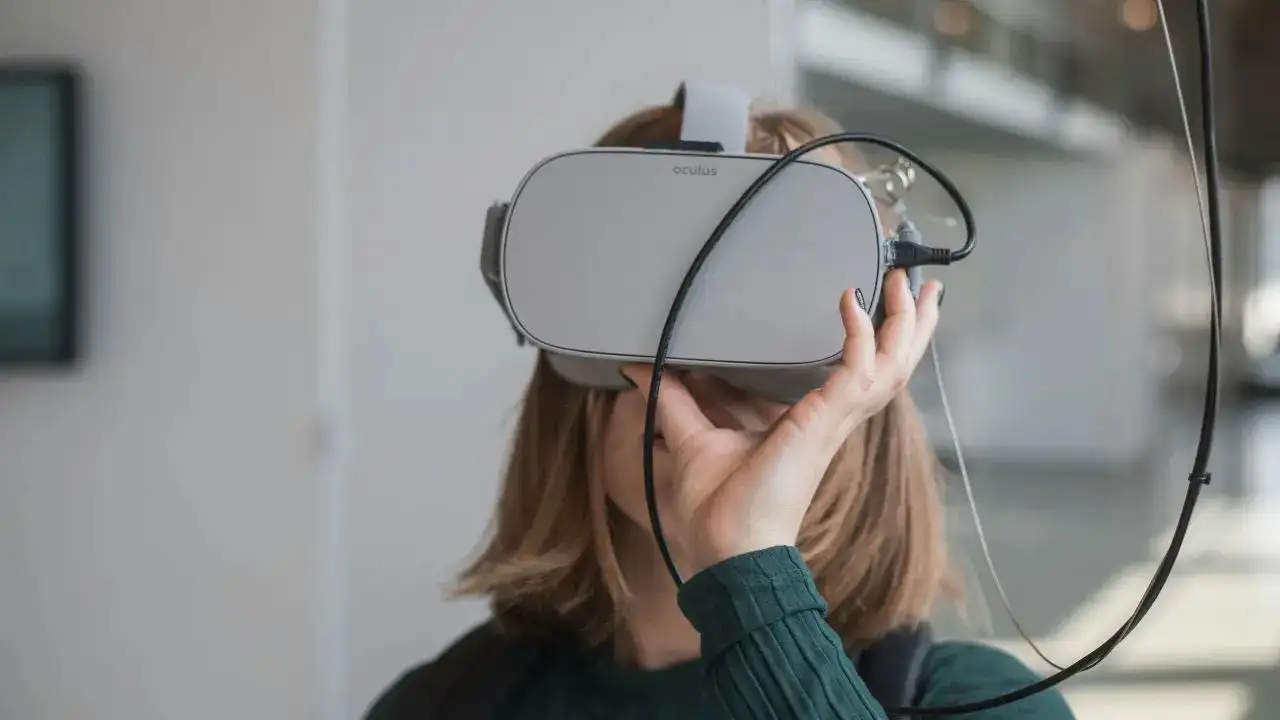Copyright The Daily Reckoning

Yesterday, NVIDIA CEO Jensen Huang dropped a bombshell. He told the Financial Times, “China is going to win the AI race.” Via FT.com: Nvidia chief executive Jensen Huang has warned that China will beat the US in the artificial intelligence race, thanks to lower energy costs and looser regulations. In the starkest comments yet from the head of the world’s most valuable company, Huang told the FT: “China is going to win the AI race.” It’s disturbing to hear the founder and CEO of the world’s largest company say this so definitively. But to be clear, Huang is working an angle. Jensen wants to be able to sell his chips to China again, as he believes that keeping their AI developers “locked in” to the NVIDIA ecosystem is essential to maintaining America’s AI leadership. He frequently points out that fully 50% of the world’s AI engineers live in China. But President Trump recently shot down the idea of selling NVIDIA’s top AI hardware to China, stating, “The most advanced [chips], we will not let anybody have them other than the United States.” Already, it may be a moot point. Because China is moving to eliminate the need for NVIDIA chips within a few years. So even the crippled versions that we allowed NVIDIA to sell them may soon disappear. Jensen does NOT want this outcome. Of course, there are still cutting-edge U.S. chips being smuggled into China, but increasingly the country’s tech firms are relying on domestic AI hardware to power their own models. And the Chinese government is subsidizing the country’s leading tech firms to use local gear. They’re giving discounted electricity rates to data centers which use domestic chips. By restricting the country from getting our best hardware, we’ve given China a powerful incentive to build their own alternatives. It could end up being one of the biggest backfires in history. Back to the Power Problem One of the primary problems NVIDIA’s Huang cited is China’s electricity advantage. The country is undergoing a massive power generation buildout, with 30 nuclear plants under construction, countless solar and wind projects, and of course, plenty of coal and gas too. In terms of cost, it’s about $.08 per kilowatt-hour in China vs $.18 here in the States. This is a problem. To maintain our AI lead, America needs a massive new buildout of power infrastructure. Not to mention that we’ll need a lot more energy to re-shore manufacturing. It’s gotten to the point where power is the primary bottleneck in building data centers and manufacturing plants. Unfortunately, our options are limited. New coal plants seem unlikely. Nuclear takes 10+ years. Gas turbines are in high demand, so there’s a 3-5 year wait. Solar and wind have a role to play, but not a huge one. Our aging grid doesn’t handle the sporadic output from “green” energy sources well. We need a massive government-backed plan to build more power plants and modernize the grid. Permitting, financing, and construction all need to be streamlined. A new Manhattan Project for electricity. Personally, I think natural gas is our best option. But we need to incentivize more turbine manufacturing capacity, immediately. Natural gas is clean, cheap, and plentiful. But environmentalists have lumped it in with coal and oil as a dirty fossil fuel, setting us back decades. Will China Win? Despite NVIDIA CEO Jensen Huang’s definitive statement that, “China will win”, the outcome is far from certain. What worries me is how so many people underestimate China. It’s easy to dismiss them as a typical communist nation, but that’s a gross oversimplification. This is no Soviet model. China today is less regulated and more “free market” than some U.S. states. And the Chinese people are not communist by nature. They are entrepreneurially-minded and money-driven. As Chinese reformer Deng Xiaoping famously said, “to get rich is glorious”. Sure, the government is officially communist, but it’s more like state capitalism these days. Competition in almost every industry is fierce. For example, 20 years ago China’s government incentivized local governments to start car production. All over the country, governments gave out cheap land, loans, and made permitting a breeze. Today China has the largest auto industry in the world. You can buy a decent electric car for $6,000. China set out to make itself an auto-manufacturing powerhouse two decades ago. Now they’re running the same playbook with AI hardware and software. China has their problems. Too much debt. Ghost cities. Overcapacity. But to underestimate them is a mistake. We must face up to the fact that they are becoming a peer competitor. Competition and necessity drive innovation. The modern computer industry was born because we needed to crack Germany’s encryption codes during WW2. So having a fierce competition with China isn’t a bad thing. We should embrace it. But to beat them, we’ll need to take full advantage of America’s greatest asset: our innovative and entrepreneurial spirit. And that means the government needs to become an ally of business, rather than a roadblock. President Trump has made good progress on this front, cutting red tape and streamlining processes. But we need to do much more. If we don’t get our act together, China is on track to win the AI race. And possibly much more.



